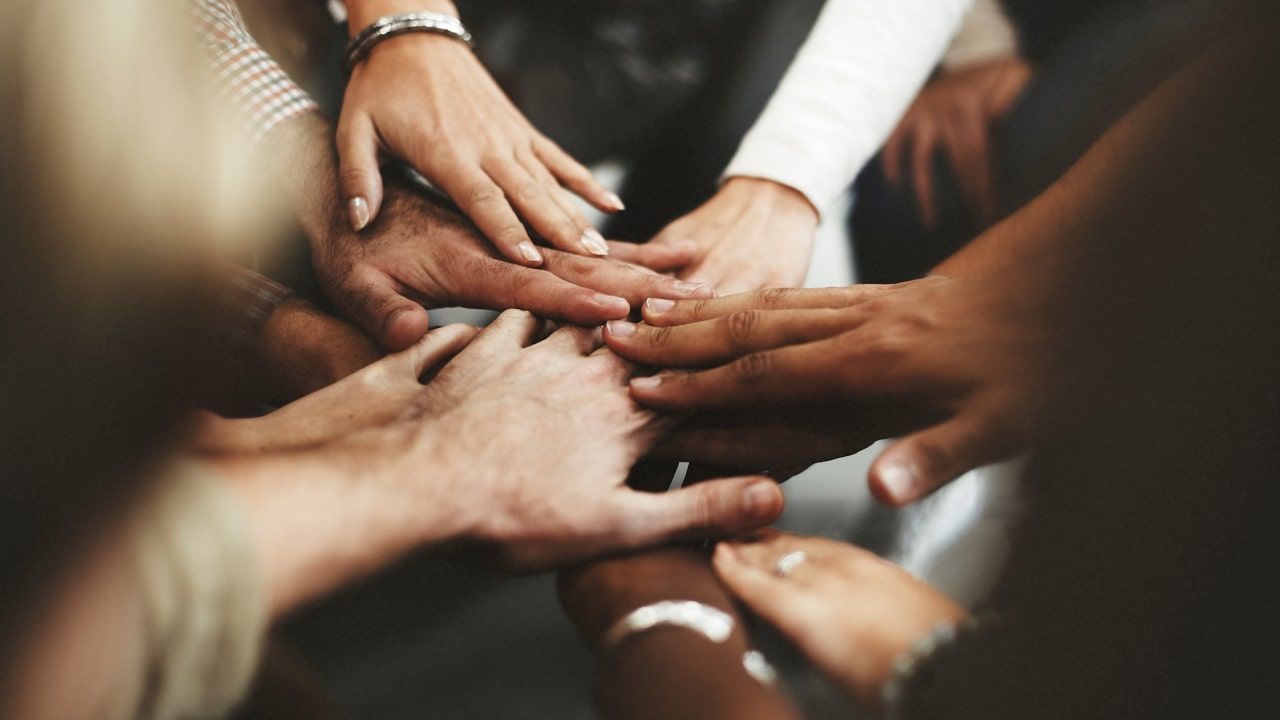Define Team Work, Tips On Working Together As A Team
By Julian Lewis • May 9, 2024

Introduction: Defining Teamwork in the Modern Workplace
The evolving concept of teamwork
Teamwork has transcended its conventional boundaries to become a pivotal element of modern work cultures. Not confined to mere collaboration, teamwork today harnesses diverse talents and perspectives, merging individual efforts into a cohesive force aimed at achieving common goals. This evolution reflects the dynamic interplay of skills, where every team member contributes uniquely towards collective success.
Why understanding teamwork is crucial
Understanding teamwork is essential in the workplace because it directly correlates with productivity and innovation. In environments where team members work collaboratively, challenges transform into opportunities for growth, driving the entire team towards greater achievements. Effective teamwork combines mutual respect, open communication, and shared responsibilities, which not only elevates team performance but also fosters a culture of professional development and job satisfaction. Recognizing the critical role of teamwork helps managers cultivate a climate where collaborative efforts thrive, aligning personal accomplishments with organizational objectives.
Join our Newsletter
Transform your career with our personal growth insights. Get one valuable tip right in your inbox every Saturday morning.
What is Teamwork?
Teamwork definition
Teamwork is the cooperative effort by a group of people to achieve a common goal. It involves individuals working together effectively to accomplish something beyond the capabilities of individuals acting alone. The essence of teamwork lies in the members’ commitment to a shared objective, which typically integrates diverse talents and harnesses various perspectives to yield superior results.
What does teamwork really mean?
At its core, teamwork means that every team member works collaboratively towards the successful completion of the project or business objective. It's not just about having multiple people working on the same task; it's about ensuring that each member’s efforts are synchronized towards the entire team’s success. Effective teamwork involves clear communication, mutual respect, and a common commitment, enabling better outcomes than isolated efforts can achieve. It encapsulates the idea that the whole team works cohesively to manage challenges, distribute responsibilities, and share the triumphs of achieved goals.
Why is Teamwork So Important in the Workplace?
Enhancing productivity and efficiency
Teamwork is critical in the workplace because it significantly enhances productivity and efficiency. When team members work collaboratively, they can pool their strengths and compensate for each other's weaknesses, leading to faster and more effective task completion. A team that communicates openly and operates cohesively is better positioned to meet deadlines and manage workloads effectively, ensuring that projects proceed smoothly and objectives are met promptly.
Fostering a collaborative culture
Moreover, effective teamwork fosters a collaborative culture that can transform the workplace environment. Such a culture promotes mutual respect among employees and encourages a sense of shared responsibility and commitment. This collaborative environment not only improves team performance but also boosts morale and motivation across the organization. As team members feel more connected and valued, they are more likely to contribute positively, driving the entire team towards achieving greater successes together.

4 Benefits of Teamwork
Increased innovation and creativity
One of the most significant benefits of teamwork is the increased innovation and creativity that it fosters. When diverse minds come together, they bring different perspectives and ideas, which can lead to innovative solutions that might not have been discovered individually. Teamwork encourages open communication and idea-sharing among team members, which stimulates creative thinking and leads to breakthrough innovations in projects and business strategies.
Improved employee morale and satisfaction
Teamwork also plays a crucial role in improving employee morale and satisfaction. Working in a team environment where contributions are valued and achievements are celebrated can boost individual morale and lead to greater overall job satisfaction. This positive work environment helps retain top talent and reduces turnover, as employees feel more connected and supported within their team structures.
Accelerated problem-solving capabilities
Collaborative teams enhance problem-solving capabilities by pooling diverse skills and experiences. When faced with challenges, teams that work well together can mobilize quickly and efficiently to address issues, often arriving at solutions faster than individuals working alone. This agility allows businesses to navigate obstacles and maintain progress towards their objectives more effectively.
Enhanced flexibility and adaptability
Finally, teamwork increases an organization’s flexibility and adaptability. Teams that are accustomed to working closely can adjust more easily to changes and unexpected situations. This adaptability is crucial in today's fast-paced business environments, where conditions and requirements can change rapidly. The ability to swiftly adapt and pivot can be a significant competitive advantage.
Characteristics of Successful Teamwork
Clear communication
Clear communication stands as the cornerstone of successful teamwork. It ensures that all team members are on the same page, understand their tasks, and the common goals of the project. Open lines of communication foster an environment where issues are quickly addressed, and collaboration flourishes. Effective communication not only involves speaking but also listening, thereby allowing team members to share ideas and express concerns without hesitation.
Mutual respect and trust
Mutual respect and trust are vital for the integrity and efficacy of a team. Respect in the workplace means acknowledging the contributions and efforts of all team members, regardless of their role. Trust builds a foundation where team members feel confident relying on each other's capabilities and commitments. This trust is crucial for the team’s ability to function under pressure and resolve conflicts constructively.
Complementary skills and roles
Successful teamwork is also characterized by the integration of complementary skills and roles. Each member brings a unique set of skills and expertise that, when combined, enhances the team's overall performance. Recognizing and utilizing these differences not only improves efficiency but also amplifies the team’s capability to tackle complex projects. This strategic alignment of talents ensures that all critical roles are covered, and the team can leverage diverse perspectives to innovate and solve problems effectively.

Personal Growth Through Teamwork
Opportunities for personal development
Teamwork offers extensive opportunities for personal development. Working in a team allows individuals to challenge themselves, stretch their abilities, and acquire new skills. This collaborative environment encourages learning from peers who bring different talents and perspectives to the table. The constant exchange of knowledge and skills within a team not only helps individuals improve their existing competencies but also empowers them to explore new areas of expertise.
The impact of collaborative success on individual confidence
The success achieved through teamwork has a profound impact on individual team members' confidence. Being part of a successful team provides a sense of accomplishment and validation that boosts self-esteem. This is particularly influential when team members see the tangible results of their collaborative efforts. Furthermore, positive reinforcement in a team setting can motivate individuals to take on more responsibilities and pursue higher challenges, fostering a cycle of success and confidence growth.
Organize Team Meetings
Purpose and frequency of meetings
Team meetings serve as a crucial platform for open communication, ensuring that every team member is aligned with the team's objectives and progress. The purpose of these meetings is to facilitate the exchange of ideas, monitor project developments, and address any challenges that arise. Regular meetings, held weekly or bi-weekly, help maintain momentum and ensure that all members are informed and engaged in the collaborative process.
Structuring meetings for maximum effectiveness
To maximize the effectiveness of team meetings, they should be well-organized and focused. Setting a clear agenda before each meeting and sharing it with all participants is essential. This agenda should outline the topics to be discussed and allocate time slots for each point to keep the meeting structured and time-efficient. Additionally, allowing time for team members to raise concerns or suggest ideas can encourage a more collaborative and inclusive atmosphere.
Join our Newsletter
Transform your career with our personal growth insights. Get one valuable tip right in your inbox every Saturday morning.
Set Clear Goals
Importance of goal-setting in teamwork
Goal-setting is fundamental in teamwork as it provides a clear direction and measurable targets for the team to achieve. Clear goals help align the team's efforts and ensure that every team member understands their role in contributing to the common objectives. This clarity is crucial for maintaining organizational alignment and motivating employees, as it connects individual contributions to broader business outcomes.
Examples of effective team goals
Effective team goals are specific, measurable, achievable, relevant, and time-bound (SMART). For instance, a software development team might aim to increase software deployment efficiency by 30% within six months. Another example could be a marketing team setting the goal to grow social media engagement by 50% by the end of the quarter. These goals not only provide a clear target but also allow the team to measure their progress and adjust their strategies as needed.
3 Team-Building Exercises for the Workplace
Problem-solving activities
Problem-solving activities are essential in team-building as they directly enhance the team's ability to address challenges efficiently. For example, using escape rooms or puzzle games that require team members to work together to find solutions can significantly improve their problem-solving skills. These activities help identify team strengths and weaknesses in a practical, engaging environment, fostering a better understanding among members of how to collectively tackle work-related obstacles.
Communication-enhancing games
Games that enhance communication can bridge gaps between team members and improve their interaction quality. Activities like 'Back-to-Back Drawing' where pairs must describe shapes or pictures without directly showing them helps in honing precise verbal communication. Another effective game is 'Idea Building Blocks', where team members build on each other's ideas to solve a given problem, which encourages open communication and idea sharing.
Trust-building exercises
Trust-building exercises are crucial for creating a supportive team environment. Exercises like 'Fall Back', where members catch each other, or 'Blind Retriever', where blindfolded members must retrieve objects based on team instructions, are powerful in building trust and reliance among teammates. These activities demonstrate the importance of trust in teamwork and help to remove interpersonal barriers, thereby enhancing team cohesion.

Track Results
Monitoring team progress
Effective team management involves regular monitoring of team progress against set goals. This can be achieved through scheduled progress reviews and using tools like project management software to track task completion and milestones. Keeping a close watch on these metrics allows team leaders and members to remain informed about their progress and address any delays or issues promptly.
Utilizing feedback for improvement
Utilizing feedback is crucial for continuous improvement in team performance. Regular feedback sessions not only help identify areas for improvement but also celebrate successes and reinforce positive behaviors. This iterative process of feedback and improvement helps teams refine their strategies and methods effectively, leading to better outcomes and enhanced team dynamics.
Hold Team-Building Events
Types of team-building events
Team-building events are essential for fostering collaboration and can vary widely to suit different needs and environments. They can include interactive workshops that engage the entire team in creative problem-solving, outdoor team sports which require physical collaboration, or role-playing scenarios that reflect common workplace situations. These events allow team members to experience working together in various settings, enhancing their ability to adapt to diverse professional challenges.
Benefits of regular events
Holding regular team-building events encourages a unified approach to achieving company goals, facilitates open communication, and promotes a collaborative effort within teams. They are pivotal in developing a culture where all team members are motivated to contribute their unique perspectives and skills. The benefits of these events extend beyond just improved teamwork; they also contribute to a more dynamic, inclusive, and productive workplace environment where the future challenges are met with collective enthusiasm and expertise.

Conclusion: Harnessing the Power of Teamwork
Summarizing the key points
Throughout this discussion, we have uncovered the essential elements that define successful teamwork in the modern workplace. From fostering clear communication and mutual respect to organizing effective team meetings and setting clear goals, the path to great teamwork involves a collaborative effort from every team member. We have explored various strategies to enhance team dynamics, including team-building exercises that cater to problem-solving, communication, and trust, ensuring that the entire team operates cohesively towards a common objective.
Encouraging continual teamwork improvement
The evolution of effective teams does not plateau; it requires ongoing development and the willingness to adapt and integrate new ideas and perspectives. Leaders and team members alike must remain committed to the pursuit of excellence through continuous learning and adapting to new challenges. By maintaining a high level of collaboration and striving for improved performance, teams can ensure they remain dynamic and productive forces within their companies.
Read more about: Professional Development, Leadership, Employee Experience
About Julian Lewis
Julian Lewis is a driven and accomplished professional with a passion for driving positive change in the business world. He is the co-founder and COO at Zella Life.
His own experience as a professional of color in a Fortune 500 company led him to discover the limitations for advancement that many professionals like himself face. Determined to reach his full potential, Julian became an established business coach and entrepreneur, committed to supporting others in their pursuit of personal and professional growth.
Today, Julian is a recognized corporate trainer, coach, and leader, known for his ability to leverage real-life experiences and evidence-based methodologies to affect positive change within individuals and organizations. As the leader of Zella Life's coaching division, he is dedicated to empowering individuals and businesses to achieve their full potential.